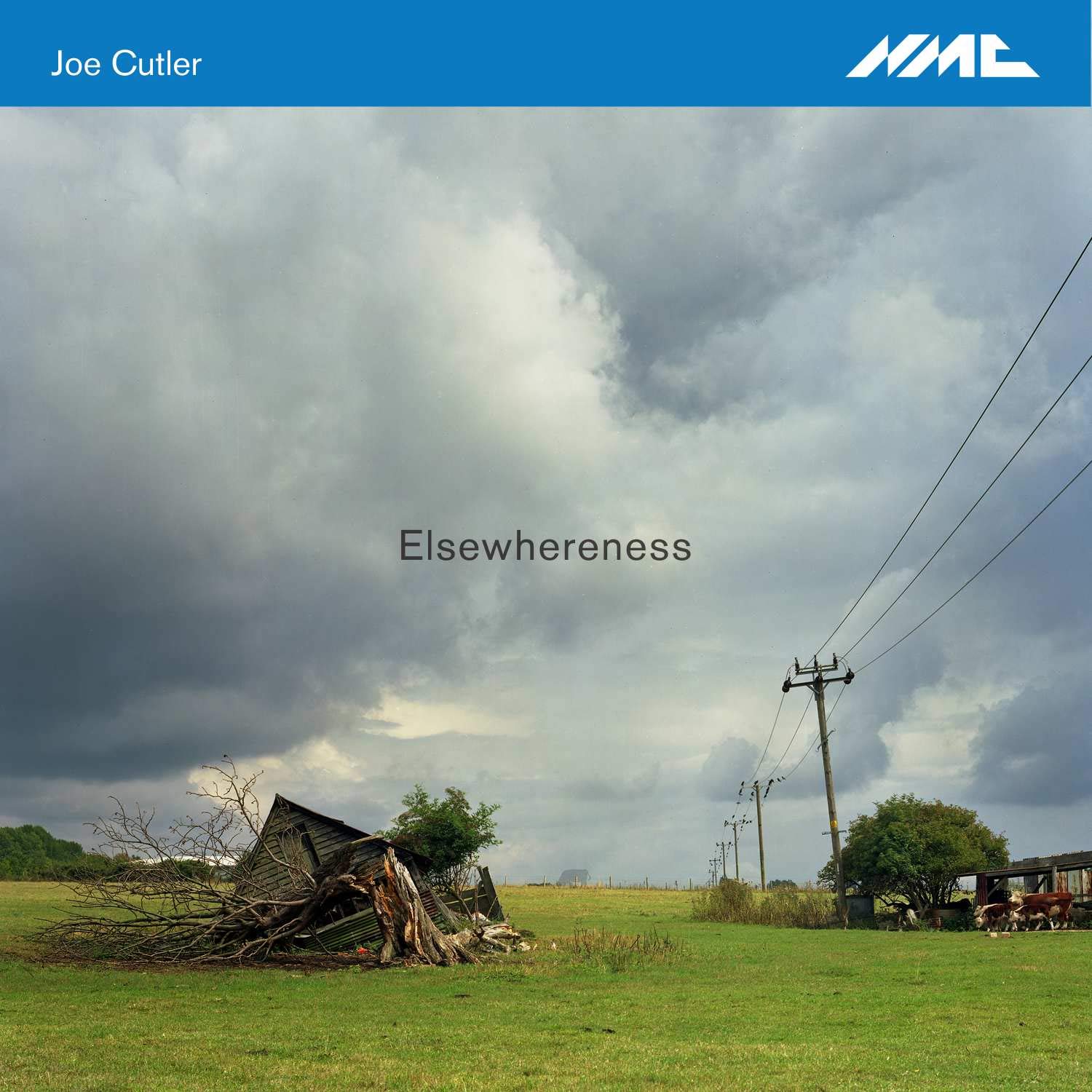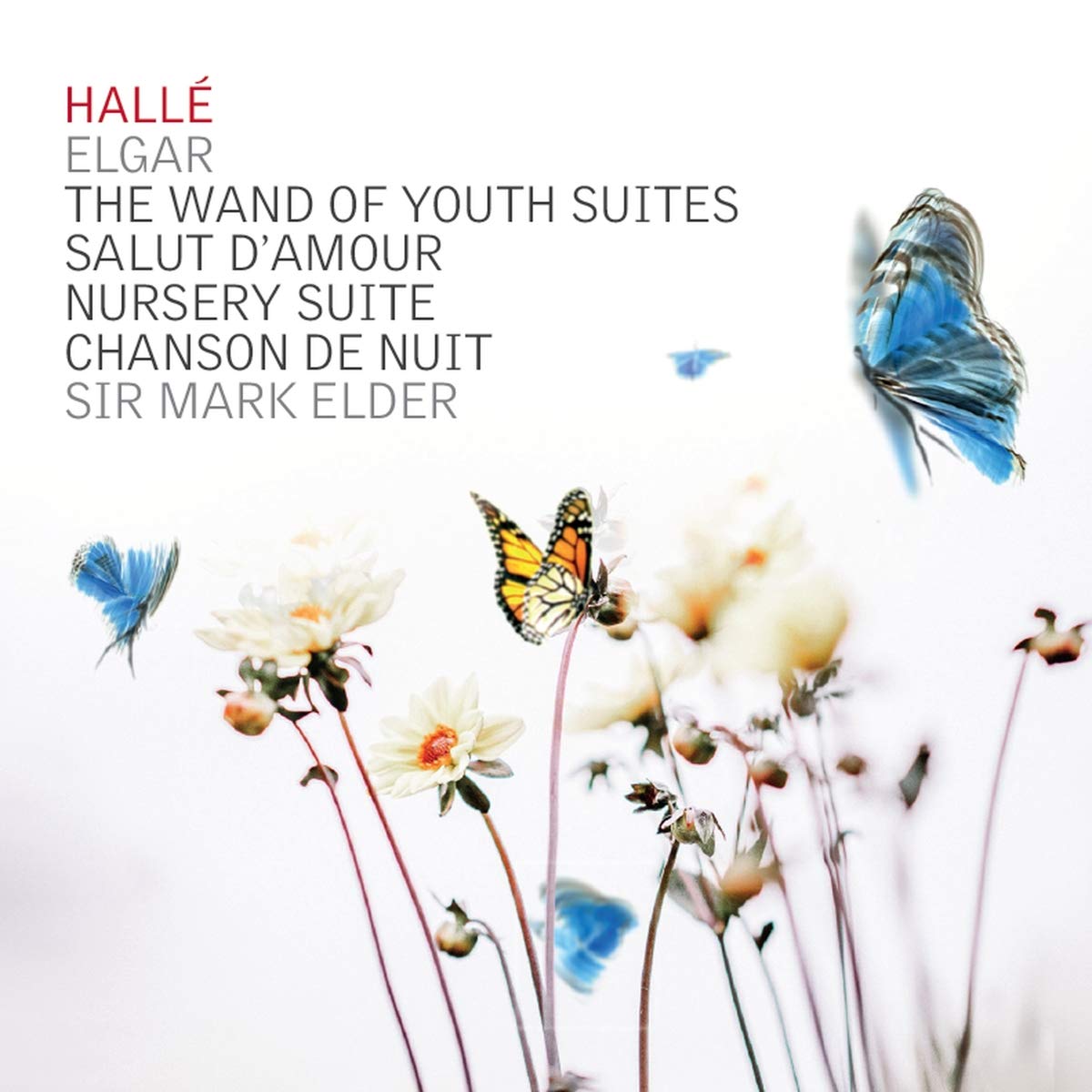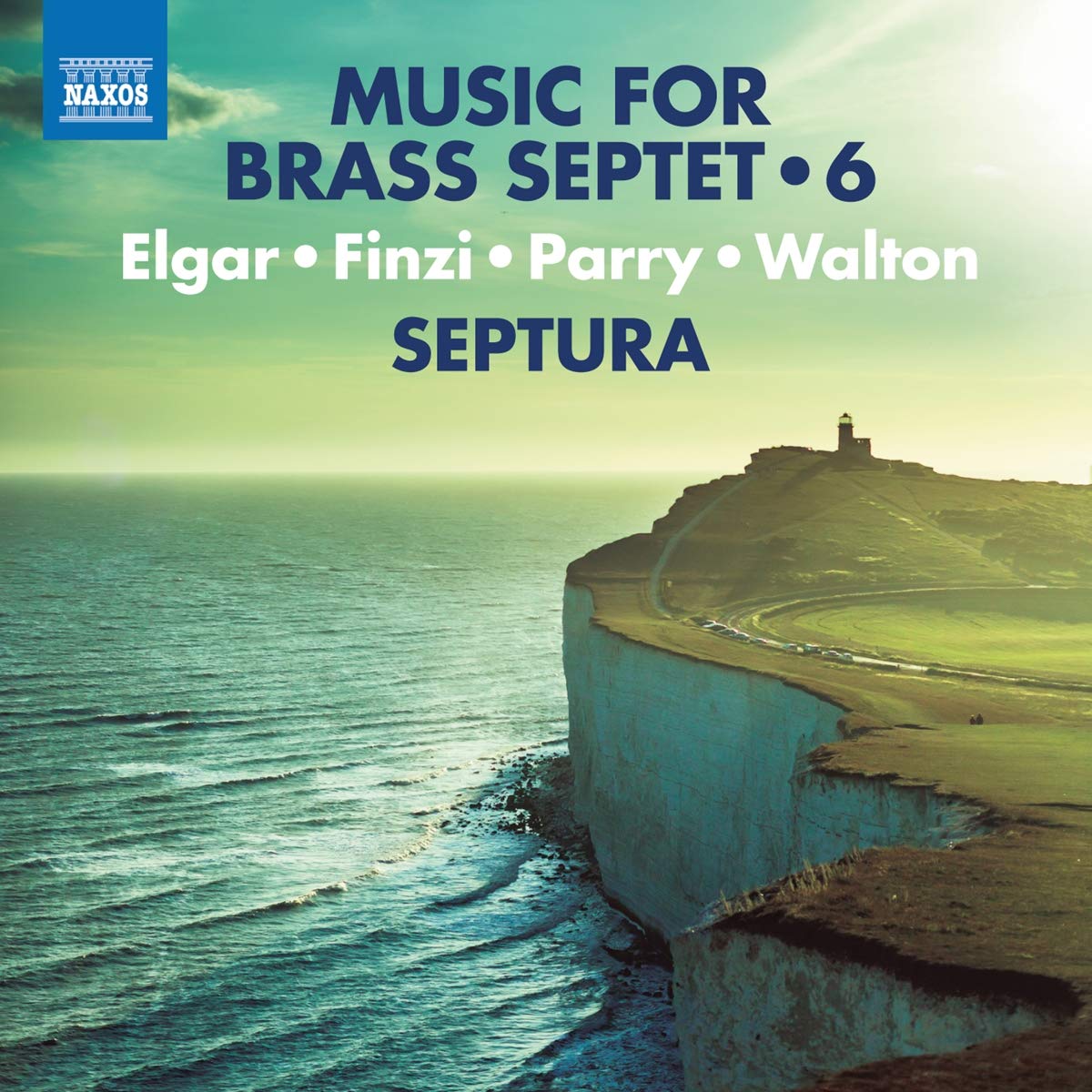Classical CDs Weekly: Joe Cutler, Elgar, Septura | reviews, news & interviews
Classical CDs Weekly: Joe Cutler, Elgar, Septura
Classical CDs Weekly: Joe Cutler, Elgar, Septura
Anvils, football, bears and trumpets feature in this week's all-British selection

 Joe Cutler: Elsewhereness (NMC)
Joe Cutler: Elsewhereness (NMC)
The titles drew me in. Karembeu’s Guide to the Complete Defensive Midfielder is a great name for a piece, Joe Cutler tangentially inspired by the great French footballer’s passing skills to create a brilliant ten-minute work for saxophone and jazz group. Players jostle, separate and regroup before a solemn, imposing coda. And, having just read about actor Dominic West’s performance in BBC1’s Les Miserables, it's cool to learn that Cutler's Irish-tinged piano trio McNulty does actually have links to West’s troubled character in The Wire. The music’s fluidity of style and shifting identities never become wearing: one of Cutler’s strengths is his timing, both comedic and musical. The works on this enjoyable NMC anthology are all neatly proportioned, Cutler knowing exactly how much mileage he can extract from his ideas.
The title work, Elsewhereness, is a nine-minute orchestral piece written for the opening of the Royal Birmingham Conservatoire's new building (where Cutler is Head of Composition). Its energy recalls Britten's similarly themed The Building of the House, Cutler's clanging anvils and shifting rhythms suggesting construction in progress. The Conservatoire's orchestra is conducted here by Mirga Gražinytė-Tyla, though her name is modestly hidden away in the small print. Sikorski B is a homage to the Polish composer Tomasz Sikorski scored for saxophone, percussion and piano, and the five Akhmatova Fragments are potent musical nuggets, superbly sung by soprano Sarah Leonard. Nervous newcomers should start with Cutler's For Frederic Lagnau, its unpredictable seven minutes bursting with killer tunes.
 Elgar: The Wand of Youth Suites, Nursery Suite, Salut d’amour, Chanson de nuit Hallé Orchestra/Sir Mark Elder (Hallé)
Elgar: The Wand of Youth Suites, Nursery Suite, Salut d’amour, Chanson de nuit Hallé Orchestra/Sir Mark Elder (Hallé)
While Elgar’s two symphonies and Gerontius can leave me a little nonplussed, his shorter pieces always hit the spot. How can anyone not enjoy Cockaigne or In the South? Sir Mark Elder’s ongoing Hallé Elgar series really hits its stride here. The two Wand of Youth suites are charmers, each movement based on music written in Elgar’s youth. He described them as “trifles; poor things but mine own boyish thoughts.” But what the mature composer does with his source material is terrific. Suite No 1’s overture fizzes here, and Elder finds magic in the “Slumber Scene”. The little march which opens the second suite is paced to perfection, and “The Little Bells” is taken daringly fast. Best is “The Wild Bears”, one of the jolliest minor key pieces I know. The Hallé horns deserve a shoutout.
Elgar's Nursery Suite was completed as late as 1930, prompted by the birth of Princess Margaret. In eight short movements, it's a neat summation of Elgar's skills. There's some glorious string writing in “The Sad Doll” and “Dreaming”, and Andrew Burn’s sleeve note suggests that Lyn Fletcher’s extended solo in the final section is Elgar's farewell to his favourite instrument. Oddest is “The Wagon Passes”, 100 seconds of ostinato and just a scrap of melody, becoming ominously loud before fading away. Wonderfully played here, and we also get the Chanson de nuit and Salut d’amour thrown in. Lovely rich sound – a must have.
 Septura: Elgar, Finzi, Parry, Walton – music for brass septet 6 (Naxos)
Septura: Elgar, Finzi, Parry, Walton – music for brass septet 6 (Naxos)
On paper, some transcriptions shouldn't work at all. London-based brass septet Septura recklessly tackle two substantial string works on their latest disc, and they triumph – presumably because player-arrangers Matthew Knight and Simon Cox know exactly what their players are capable of and don't dumb anything down. Elgar's Serenade for Strings sounds here like idiomatic brass music. Tuba and trombones provide suitably well-defined bass lines, and Septura's three trumpets excel in Elgar's higher writing – listen to Huw Morgan’s unobtrusive, astonishing high note on Eb trumpet at the close of the work. Simon Cox’s arrangement of Walton's Sonata for String Orchestra (expanded from his String Quartet No 2) is phenomenal, a substantial chamber symphony lasting nearly 30 minutes. The unanimity of attack in the faster movements is exhilarating; I defy anyone to listen to the second movement without grinning.
Four of Parry’s Songs of Farewell play out at a lower voltage, though that's down to Parry rather than the performances; shorn of words they lose much of their impact. Finzi’s God is gone up fares better, as do two miniatures for strings. Buy this for the Elgar and Walton. Sumptuous recorded sound, and it's at budget price.
Explore topics
Share this article
The future of Arts Journalism
You can stop theartsdesk.com closing!
We urgently need financing to survive. Our fundraising drive has thus far raised £49,000 but we need to reach £100,000 or we will be forced to close. Please contribute here: https://gofund.me/c3f6033d
And if you can forward this information to anyone who might assist, we’d be grateful.

Subscribe to theartsdesk.com
Thank you for continuing to read our work on theartsdesk.com. For unlimited access to every article in its entirety, including our archive of more than 15,000 pieces, we're asking for £5 per month or £40 per year. We feel it's a very good deal, and hope you do too.
To take a subscription now simply click here.
And if you're looking for that extra gift for a friend or family member, why not treat them to a theartsdesk.com gift subscription?
more Classical music
 theartsdesk at the Pärnu Music Festival 2025 - Arvo Pärt at 90 flanked by lightness and warmth
Paavo Järvi’s Estonian Festival Orchestra still casts its familiar spell
theartsdesk at the Pärnu Music Festival 2025 - Arvo Pärt at 90 flanked by lightness and warmth
Paavo Järvi’s Estonian Festival Orchestra still casts its familiar spell
 BBC Proms: Batsashvili, BBC Scottish Symphony Orchestra, Ryan Wigglesworth review - grief and glory
Subdued Mozart yields to blazing Bruckner
BBC Proms: Batsashvili, BBC Scottish Symphony Orchestra, Ryan Wigglesworth review - grief and glory
Subdued Mozart yields to blazing Bruckner
 Classical CDs: Hens, Hamburg and handmaids
An unsung French conductor boxed up, plus Argentinian string quartets and baroque keyboard music
Classical CDs: Hens, Hamburg and handmaids
An unsung French conductor boxed up, plus Argentinian string quartets and baroque keyboard music
 BBC Proms: McCarthy, Bournemouth SO, Wigglesworth review - spring-heeled variety
A Ravel concerto and a Walton symphony with depth but huge entertainment value
BBC Proms: McCarthy, Bournemouth SO, Wigglesworth review - spring-heeled variety
A Ravel concerto and a Walton symphony with depth but huge entertainment value
 BBC Proms: First Night, Batiashvili, BBCSO, Oramo review - glorious Vaughan Williams
Spirited festival opener is crowned with little-heard choral epic
BBC Proms: First Night, Batiashvili, BBCSO, Oramo review - glorious Vaughan Williams
Spirited festival opener is crowned with little-heard choral epic
 Interview: Quinteto Astor Piazzolla on playing in London and why Mick Jagger's a fan
Music Director Julián Vat and pianist Matias Feigin compare notes on Piazzolla
Interview: Quinteto Astor Piazzolla on playing in London and why Mick Jagger's a fan
Music Director Julián Vat and pianist Matias Feigin compare notes on Piazzolla
 Classical CDs: Bells, birdsong and braggadocio
British contemporary music, percussive piano concertos and a talented baritone sings Mozart
Classical CDs: Bells, birdsong and braggadocio
British contemporary music, percussive piano concertos and a talented baritone sings Mozart
 Siglo de Oro, Wigmore Hall review - electronic Lamentations and Trojan tragedy
Committed and intense performance of a newly-commissioned oratorio
Siglo de Oro, Wigmore Hall review - electronic Lamentations and Trojan tragedy
Committed and intense performance of a newly-commissioned oratorio
 Alfred Brendel 1931-2025 - a personal tribute
A master of feeling and intellect
Alfred Brendel 1931-2025 - a personal tribute
A master of feeling and intellect
 Aldeburgh Festival, Weekend 2 review - nine premieres, three young ensembles - and Allan Clayton
A solstice sunrise swim crowned the best of times at this phoenix of a festival
Aldeburgh Festival, Weekend 2 review - nine premieres, three young ensembles - and Allan Clayton
A solstice sunrise swim crowned the best of times at this phoenix of a festival

Add comment